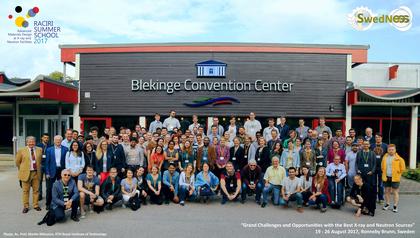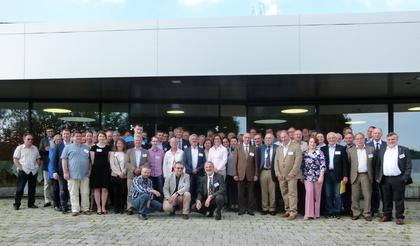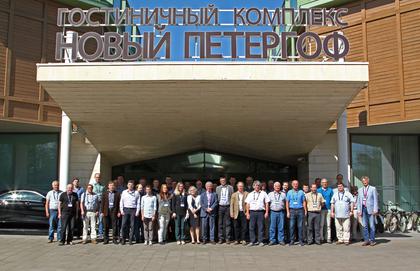CREMLIN Session on Big Data at the RACIRI 2017 Summer School
31 August, 2017
The RACIRI 2017 Summer School took place in Ronneby and Lund, Sweden, from 19-26 August 2017 with over 90 participants. This year’s focus theme was “Grand Challenges and Opportunities with the Best X-ray and Neutron Sources”.
The RACIRI Summer School is a joint initiative by Russia, Sweden and Germany in the collaborative framework of the Röntgen-Angström-Cluster (RAC) and the Ioffe-Röntgen-Institute (IRI).
The RACIRI Summer Schools 2016, 2017, and 2018 are also supported by the CREMLIN project. The program of this RACIRI Summer School featured a special CREMLIN Session dedicated to the topic of Big Data. As an introduction, Martin Sandhop (DESY) and Mikhail Popov (NRC KI) gave short overview talks on the CREMLIN project and the Russian Megascience projects.
Patrick Fuhrmann (DESY) gave this year´s CREMLIN session top talk on “Data Challenges in the European Science Landscape”. He gave a clear and fascinating picture of many topics related to big data in science, for instance “the scientific Data Life Cycle“, ”Data Placement in distributed computing”, “Long term data preservation”, and current trends in “Data federations”. Finally, Patrick illustrated the current European Open Science Cloud EOSC and its FAIR principles: scientific data should be Findable, Accessible, Interoperable, Re-Usable.
The novel format of the RACIRI Summer School is driven by scientific frontier themes and challenges in the field of materials sciences with a strong connection to the superb analytical potential at current and future research infrastructures (synchrotron radiation, X-rays and neutrons) in the Baltic region.
With the upcoming top facilities European X-ray Free Electron Laser (European XFEL) in Hamburg, the European Spallation Source ESS, and the MAX IV Laboratory in Lund, as well as the high-flux research reactor PIK in Gatchina near St. Petersburg, the Baltic region will significantly strengthen its analytical research capabilities over the next decade that will also be accessible to users from other nations.
A key target of both platforms, RAC and IRI, is the training of the next generation of researchers in order to contribute to the best possible exploitation of this unique research infrastructure.





